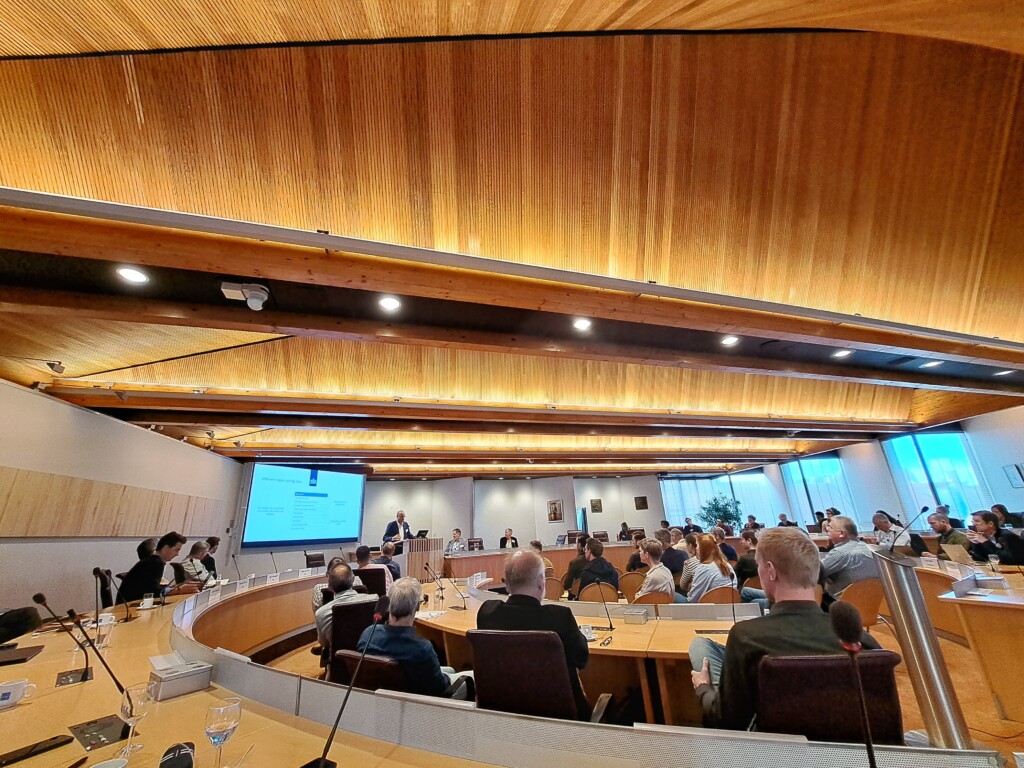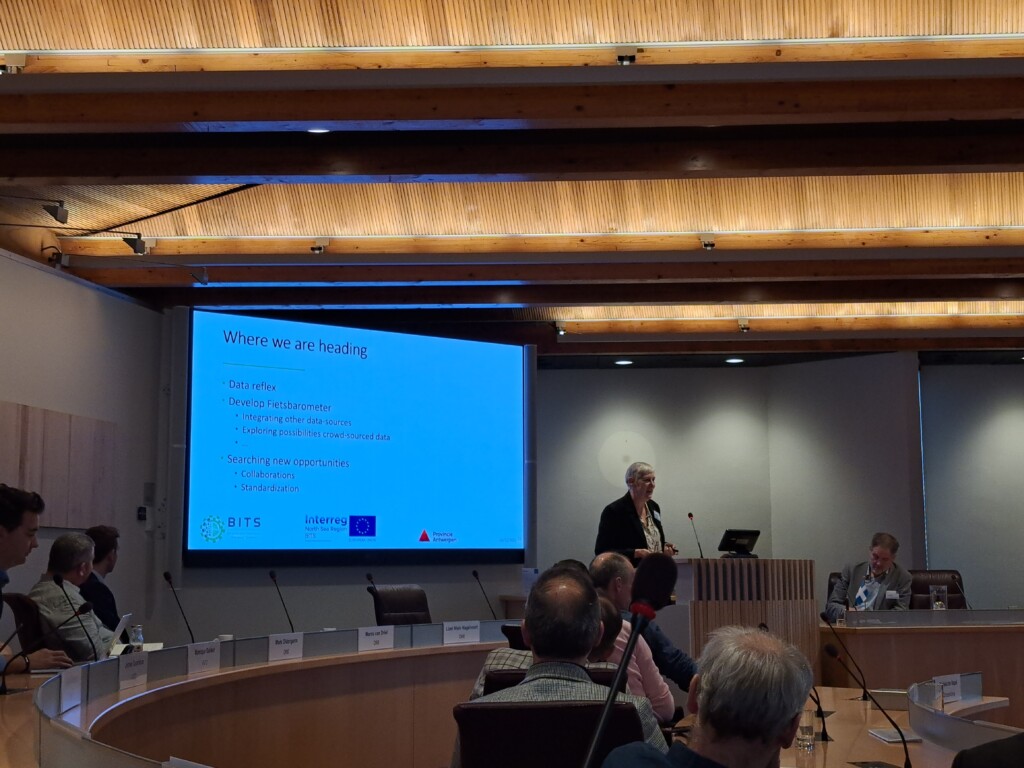BITS / Conference / Cycling / Innovation / Mobility
BITS Conference Summary
O n November 16, 2022, the final event for the Bicycle and Intelligent Transport Systems (BITS) project concluded the four years of Europe’s first and only cycling-specific ITS project. The event was hosted by the City of Zwolle, one of the Netherlands’ leading cycling cities known for its progressive cycling innovations and policies. Bringing together project partners and stakeholders from the cycling and ITS communities, the conference informed participants about the project’s objectives and successes of implementation throughout the North Sea Region, as well as lessons learned and where can go from here. Mobycon Intern, Nieve Greene, shares her experience and key takeaways from attending the conference.
n November 16, 2022, the final event for the Bicycle and Intelligent Transport Systems (BITS) project concluded the four years of Europe’s first and only cycling-specific ITS project. The event was hosted by the City of Zwolle, one of the Netherlands’ leading cycling cities known for its progressive cycling innovations and policies. Bringing together project partners and stakeholders from the cycling and ITS communities, the conference informed participants about the project’s objectives and successes of implementation throughout the North Sea Region, as well as lessons learned and where can go from here. Mobycon Intern, Nieve Greene, shares her experience and key takeaways from attending the conference.
My first encounter with the BITS project was when I was researching East Riding Yorkshire Council’s new bicycle library in Withernsea a few months before the conference. Eager to expand my knowledge of ITS applications and cycling data, I decided to attend the BITS project event.

One topic that I had not considered before which was brought to light at the conference was, how can we define cycling data? Initially, I assumed it was about collecting information on the movements and behaviours of cyclists. And I’m not wrong. But what this conference demonstrated is that it has a bigger scope and significance than this one focus. Rick Lindeman, National Bicycle Coordinator, highlighted the various types of cycling data that exist such as traffic-safety data, asset data, experience-data, and floating cycle data – to name a few. Given the complexity of cycling network data, the necessity of the BITS project and its service in providing implementers with ready-to-use information becomes readily evident.
A notable achievement by Province Antwerp and the BITS project is the Cycle Data Hub, an international open data portal that collects and shares cycling data. Currently, it has 259 different data sets from several providers in the North Sea Region on different topics such as cycle use, safety, and infrastructure. Although this platform provides valuable insight into cycling statistics, analyses, and policy, Tina Caers, Head of Mobility of Province Antwerp, emphasises the importance of discussing the categorisation of data types. For example, the lack of a definition for “near-accidents” meant that the data collected on this from different providers was not coherent and thus not comparable. This challenge is part of a wider concern for the Cycle Data Hub, that being data reflex. A concept introduced by BITS, data reflex concerns the awareness and usability of Intelligent Transport Systems. The availability, processing, understanding, and publishing of data are all essential areas in ensuring that the full potential of ITS can be achieved.

Another personal takeaway was the awareness that cycling data can have implications both within and beyond the field of mobility. There were multiple progressive innovations discussed at the conference, but what stood out to me was WeCity’s Sniffer Bikes. As Pieter Slager, IoT advisor from WeCity explained, this device attaches to the user’s cycle and measures the air quality during the ride, specifically the PM2.5. Significantly, this innovation demonstrates how the BITS project can benefit not only the users of cycling networks but also the greater public.
In terms of who was present at the event, I was content to see an inclusive representation of genders and ages from the panelists and attendees. Moreover, I had the pleasure of talking with representatives of the East Riding Yorkshire Council and Travers Welzijn. These women expressed that their background was situated in the field of mobility, but like me, they had a foundational understanding of the BITS project and were excited to learn more. The shared perception that this agenda is not only for data experts and transport engineers but for the whole mobility and urban planning community, is a valuable attitude that I foresee playing a pivotal role in supporting the momentum toward cycling data as a tool to increase cycling uptake and improve cycling safety.

